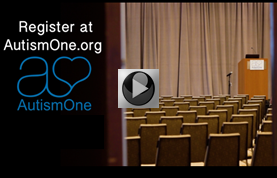What Autism Is and Isn't
As April, Worldwide Autism Awareness month, approaches I am once again reminded of the progress we have made. As a family, we have made immense progress! I am proud of that fact. But, as a society, we have made very little. That fact can be very difficult for families of individuals with autism. The misconceptions, stereotypes, controversy and misinformation that surrounds autism can be every bit as debilitating as is the autism itself, possibly even more so.
So let’s start there. Autism is a disability. Yes, people with autism are differently abled and can possibly become contributing, productive members of society, but that is not to say they will do so without a tremendous amount of hard work and dedication from numerous individuals as well as support services and resources on many different levels. Individuals with autism do not miraculously just one day outgrow it. Although, sadly some headlines may have wrongly lead you to believe that can happen. It doesn’t. The only hope a person consumed, and autism is all consuming, has of becoming independent is through tremendous dedication and hard work; proper services, including educational and social outlets; in addition to understanding and appreciation of those deficits and differences.
Autism is not just a different way of thinking. Autism is a processing disorder. The information both coming in and going out is skewed. Think about that; really and truly think about it. Everything you hear, taste, smell, touch and see is not quite the same as how everyone else around experiences that same thing. For some individuals with autism those differences are profound! So yes, people with autism most likely think about many things differently. Why wouldn’t they? They experience the world differently.
People with autism have the same outward appearance as do you and I. They don’t look any different. Some of those with autism may have comorbid conditions such mental retardation in addition to their autism, which may or may not have a distinct or identifiable outward, physical appearance, but for the most part most people with autism don’t look any different than you or I do.
People with autism are not geniuses. While some are of an exceptional intellect, most are not. Just as is true in all of society, some can lay claim to exceptional intelligence. People with autism are individuals first, after all. They were born and are people. Every person is different and unique from another, even in identical twins. The same is true of people with autism.
And what about those who are savants? True enough. Some individuals with autism are also savants who exhibit an exceptional, unexplainable gift or talent which is rare, extremely rare. Again, this is the exception and not the rule. Although T.V., the cinema and media often lead the general public to believe that people with autism commonly exhibit or posse some uncommon genius, savant by definition is particularly unusual.
People with autism do not love and/or are incapable of empathy or compassion. Really? And people believe that?! They are people FIRST for crying out loud. People with autism may be easily overwhelmed or consumed by feelings and emotions, they may not know how to sort those sensations out or cope with them, they further more may not have learned how or have the means to properly convey what they are feeling, thinking or even desiring to say, but people with autism are PEOPLE FIRST and foremost! Please think of them as such.
As the old adage goes, “It takes a village.” Please, take the time to get to know someone with autism. Please lend a hand when you can, even if it is merely by learning more about their condition. And please, think of them as people first. People who desperately need for us to know and understand them that we might be better equipped to care for them and help them grow.
Lin Wessels is mother to a very hard working, bright and caring boy who was diagnosed at the age of two with autism. Together with her son Sam, now ten, and husband Mark, also Sam's dad, they work tirelessly to educate others about their son’s condition while advocating for individuals with autism as well as those who love and care for them.
- linwessels's blog
- Login or register to post comments





